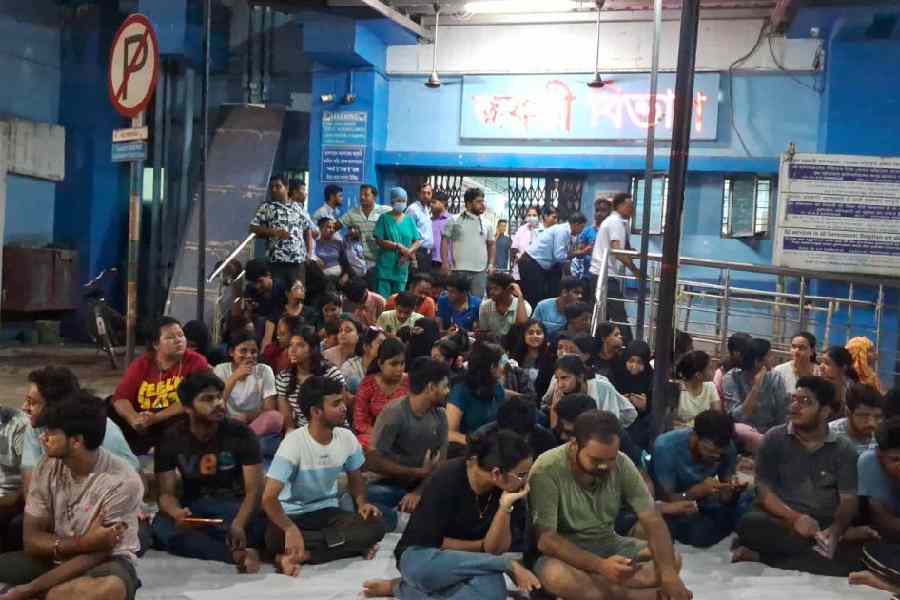Authorities of the Jalpaiguri Government Medical College and Hospital have drawn up a comprehensive plan to stop the prevalence of “threat culture” at the institution, taking a cue from the recent protests witnessed at the North Bengal Medical College and Hospital in Siliguri.
Unlike the NBMCH, which is the oldest medical college in north Bengal and has
around 350 junior doctors and 1,000 students, the JGMCH, which was constituted in 2021, has only 200 medical students now.
After the gruesome rape and murder of the woman doctor in RG Kar Medical College and Hospital in Calcutta, protests rocked the NBMCH over the allegations of highhandedness and malpractices in exams by some junior and resident doctors with Trinamool links who were also allegedly seen at the scene of the crime after the August 9 brutality at RG Kar.
Learning lessons from NBMCH, authorities at the JGMCH want a clean environment on campus.
“We don’t want such a situation in the JGMCH (like in the NBMCH). Students here should study freely and not face undesirable duress,” said a faculty member.
Kalyan Khan, the medical superintendent and vice-principal of JGMCH, said: “We have drawn up a plan to prevent threat culture which involves instances of intimidation, bullying and disruptive behaviour.”
As a part of the initiative, the authorities have decided to conduct regular interactions with students to ensure that they do not face any inconvenience during their studies.
“There will be open forum meetings, at least once in each quarter. These meetings will provide a platform for students, faculty members and the staff to voice grievances, share suggestions and engage in discussions on ethical practices,” he added.
According to the plan, the authorities have also introduced a mentorship programme in which every three students of one batch has one allocated teacher.
“Students can interact with the teacher regularly about any concern, be it psychological or academic. They can also inform the
teacher informally if they face any problem or witness any malpractice,” said Prabir Deb, the JGMCH principal.
There are around 30 teachers at the institution now.
“In due course, we will include the general administration at these meetings so
that students can interact with them with queries. The idea is transparency,” Deb added.










